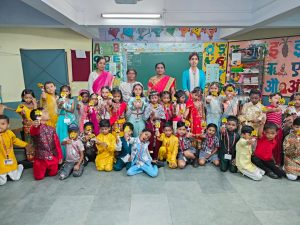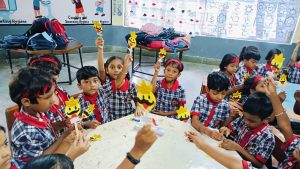Balvatika
“Bal Vatika” refers to the pre-primary section introduced in Kendriya Vidyalayas (KVs), central government schools in India. This initiative aims to provide foundational education to young children, typically aged 3 to 6 years.
1. Objective
The primary goal of Bal Vatika is to prepare children for formal schooling. It focuses on the cognitive, emotional, social, and physical development of children. The curriculum is child-centric and activity-based, ensuring holistic growth.
2. Curriculum
The curriculum is designed around play-based and experiential learning. It includes:
Storytelling
Art and craft
Music and dance
Physical activities
Basic literacy and numeracy skills
The aim is to make learning engaging, enjoyable, and meaningful.
3. Teaching Methodology
Teachers adopt interactive and participatory approaches, such as:
Group activities
Games and play-based tasks
Hands-on learning experiences
This ensures that children’s diverse learning needs are met effectively.
4. Infrastructure
KVs with Bal Vatika have dedicated, safe, and stimulating spaces for children. These spaces are:
Colorful and welcoming
Equipped with age-appropriate educational materials
Filled with toys, charts, and other learning aids
5. Teacher Training
Teachers handling Bal Vatika undergo specialized training, focusing on:
Child psychology
Innovative teaching methods
Building an inclusive and supportive classroom environment
6. Parent Involvement
Bal Vatika emphasizes the active participation of parents. Schools organize:
Regular Parent-Teacher Meetings
Workshops and interactive sessions
This helps parents stay connected to their child’s progress.
7. Implementation under NEP 2020
The establishment of Bal Vatika is aligned with the National Education Policy (NEP) 2020. The policy recognizes Early Childhood Care and Education (ECCE) as a critical stage in a child’s growth and learning journey.



